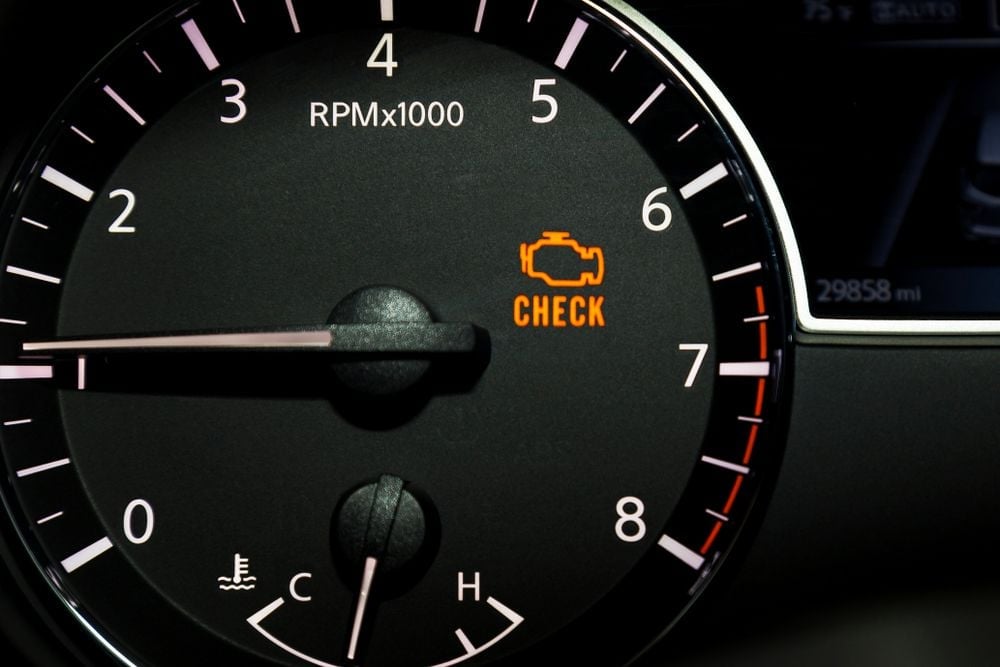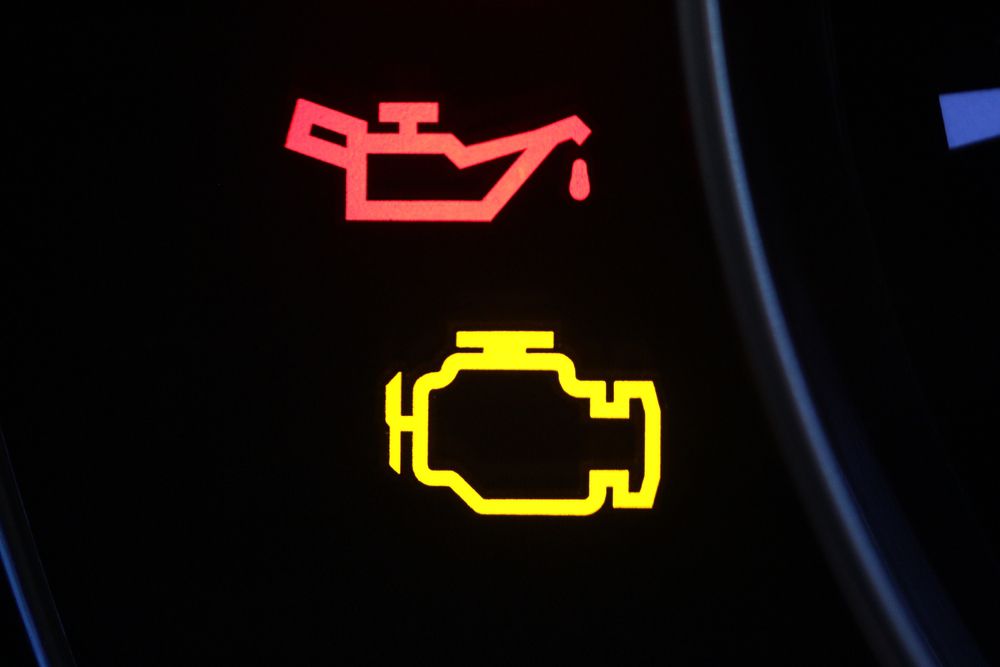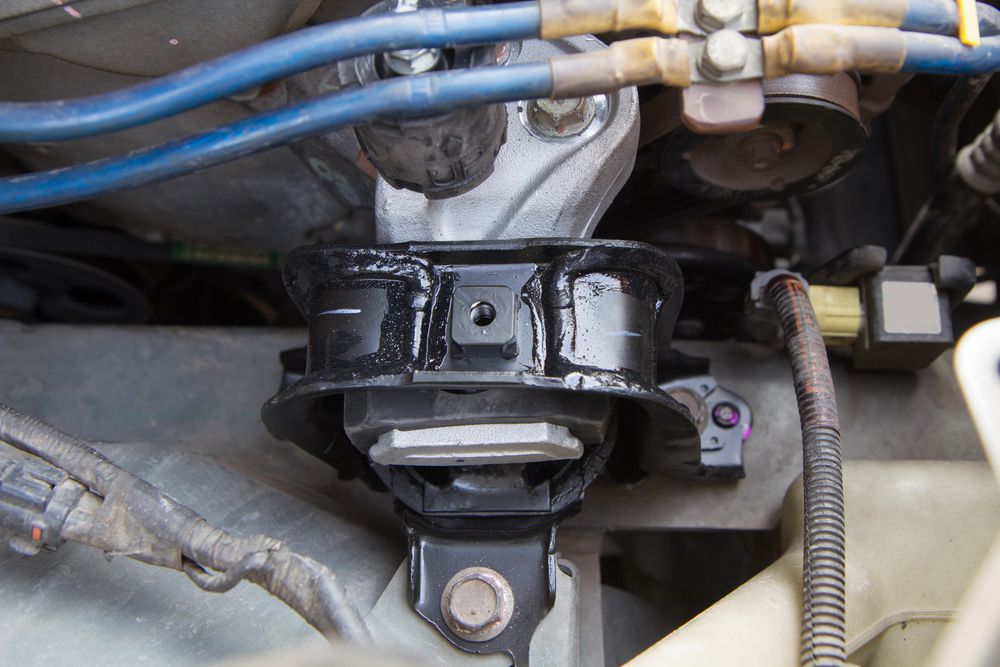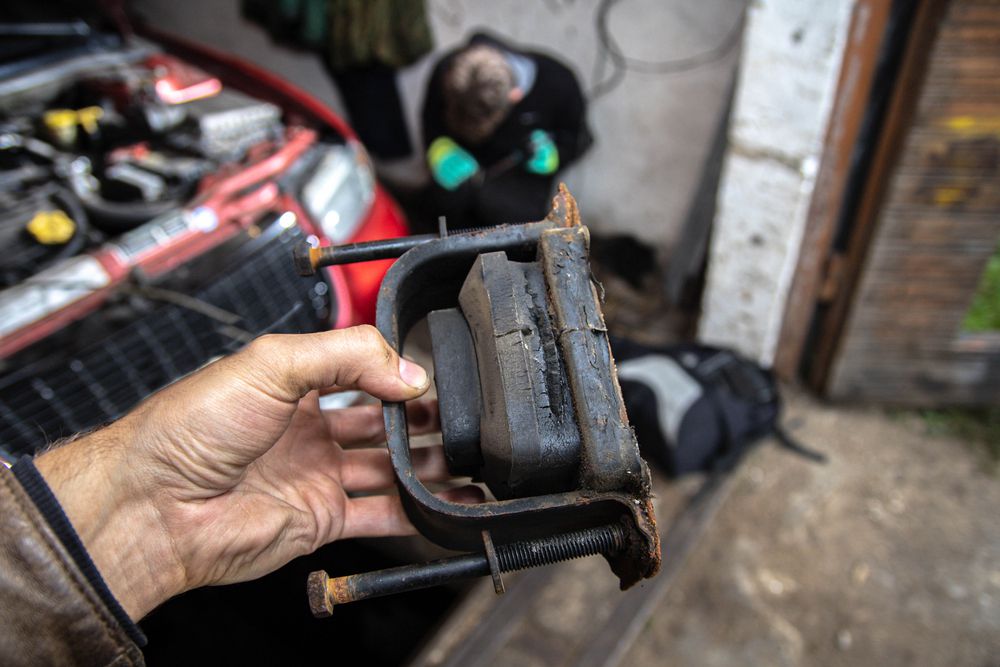
Driving down the road with a blinking check engine light and car shaking can be quite worrying!
A flashing check engine light, together with shaking or vibration, could be due to a number of problems, including a broken engine mount, faulty ignition coil, issues with ignition and fuel timing, problems with the fuel system, including fuel injectors or a bad fuel pump, or the idle air control valve among other things.
The engine trouble codes that the ECU stores will help determine the root cause of the problem.
Keep reading to learn more about the symptoms and signs of check engine lights and vibrating car engines.
 A vehicle dash displaying a check engine light.
A vehicle dash displaying a check engine light.
What Does It Mean When A Car Engine Shakes And Check Engine Light Flashing?
There are several reasons that your car might experience engine shaking and check engine light blinking at once, including:
1. Misfires: Can A Misfire Cause Vibration?
Engine misfires are a symptom of a problem with your engine, typically an ignition problem like bad spark plugs, faulty ignition coils, a timing issue or a problem with a sensor such as the mass air flow sensor, or a fuel supply problem like a dirty fuel injector or a faulty fuel pump.
If the misfire is severe enough, your engine will vibrate, but you will often only notice a rough engine idle, and the check engine light flashes.
Is An Engine Misfire Expensive To Fix?
How much it costs to repair an engine misfire depends on what is causing the engine to misfire in the first place.
Consider some of the following solutions and their average costs to understand better what you might have to pay.
Table explaining how much it costs to fix a misfire.
| Bad or Old Spark Plug |
Replacement costs roughly $230 ($145 for labor and $85 for parts) |
| Vacuum Hose Leak |
Repair costs approximately $150 to $300 |
| A Faulty or Old Engine Ignition Coil |
Replacement costs roughly $240 ($60 for labor and $180) |
| Faulty Spark Plug Wire |
Replacement costs roughly $210 ($75 for labor and $135) |
| Clogged Catalytic Converter |
Best to replace, cost is roughly $1,825 ($165 for labor and $1,660 for parts) |
2. Low Engine Oil Level: Can Low Oil Cause Car To Shake?
A low engine oil level can make your car to shake due to a lack of lubrication which will cause an increase in friction, as well as make the check engine light flash due to low engine oil pressure.
Friction between the piston rings and the cylinder bore and between the crankshaft and main bearings will cause heat until they eventually seize up, causing a lot of extreme shaking in the process.
Variable valve timing is operated by engine oil pressure in many vehicles. The insufficient oil pressure will cause valve timing malfunctions leading to a rough running engine and potential vibrations and shaking.
 Oil warning light could indicate a low oil pressure.
Oil warning light could indicate a low oil pressure.
Too much engine oil can cause engine vibrations?
Too much engine oil can cause vibrations because as the crankshaft rotates, it will meet resistance when it hits the high oil level in the oil pan.
Low Viscosity Oil Causes Vibrations?
High viscosity oils can reduce engine vibrations, but they also reduce fuel economy compared to a low viscosity oil.
3. Transmission: Can Transmission Cause Car Shake?
A transmission can cause a car to shake if its fluid level is low or its fluid is dirty.
Low automatic transmission fluid levels can cause a transmission to shake or shudder when the transmission is going into gear or shifting gears because of friction and heat between the internal mechanisms.
In automatic transmissions, many of the internal mechanisms and actuators are functioned by oil pressure. Therefore, they won't receive the oil pressure to function smoothly if the oil level is low.
Dirty transmission fluid will clog the transmission fluid filter, which will prevent the transmission oil from being pumped to where it needs to go, negatively affecting the transmission's operation in much the same way as a low oil level.
In most modern vehicles, a problem with the transmission will throw a trouble code and cause the check engine light to come on.
 Engine Mount (black) secures the engine in the car.
Engine Mount (black) secures the engine in the car.
4. Broken Engine Mount
Engine mounts (motor mounts) hold the engine in place on the vehicle's frame within the engine bay.
They are made from a hard rubber compound that absorbs the engine's vibrations, preventing them from traveling through the frame and body of the vehicle.
Over time engine mounts will wear out and deteriorate from heat and moisture and often crack and fall apart.
A broken engine mount will cause severe shaking that you will feel throughout the car.
A sensor, such as the vibration knock sensor, may or may not be triggered by a broken engine mount depending on the vehicle and how bad the vibration is.
 A torn engine mount in the mechanic's hand.
A torn engine mount in the mechanic's hand.
5. Hoses (i.e., Vacuum Or Air) That Are Disconnected Or Coming Loose In The Engine System
Vacuum leaks can create an air/fuel mixture imbalance that can cause engine problems.
The hoses on the car's engine bay are often made of rubber that dry out, hardens, and cracks due to heat from the engine.
When the hose cracks, excess air enters the vehicle's vehicle's intake leading to the car's engine running rough, the car shaking and triggering an engine sensor, like the mass air flow sensor, that will lead to the check engine light blinking.
Conclusion
A number of different problems could be causing your car to shake and the check engine light to flash.
Luckily, you can retrieve the check engine trouble code stored in ECU with an OSBII code scanner, which can help lead you or a mechanic to the root cause.
Amazon has a multitude of OBD2 scanners at affordable prices like this one here (paid link).
Problems that can cause engine vibration along with a check engine light flashing include ignition problems like faulty spark plugs or bad ignition coils, fuel supply problems like dirty injectors, broken motor mounts, and mechanical problems like failing main bearings or a failing transmission.
To properly determine the root of your engine shaking problem, visit a certified mechanic for a complete diagnosis and suggestions on how you may fix the problem at hand.
References
https://www.carsdirect.com
https://www.repairsmith.com
https://www.philsservice.com
https://repairpal.com
https://www.diycarserviceparts.co.uk
https://www.jdpower.com
https://www.bohntoyota.com
https://mrtransmission.com
https://repairpal.com
https://repairpal.com